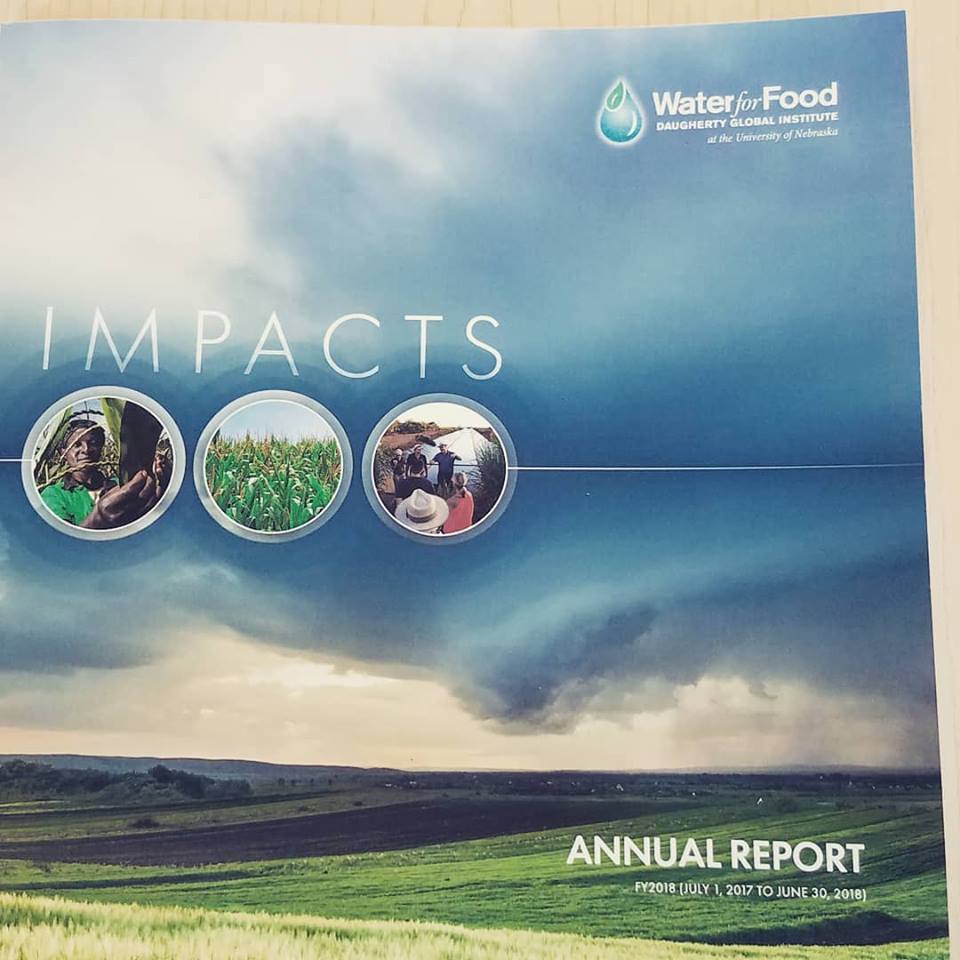
One in nine people in our world go to bed hungry each night. That's 795 million children and adults who do not have enough food to lead healthy lives.
The challenge is growing. Global drivers like climate change, urbanization and increasing demand for water-intensive agricultural products are altering landscapes, increasing soil erosion, and degrading water resources and soils in important food producing regions around the world. Our challenges are going to get even worse as our population approaches 10 billion in the next 30 years.
Nebraska is at the forefront of finding ways to use water as effectively and efficiently as possible to grow more food. The Daugherty Water for Food Global Institute was established to leverage expertise and knowledge in Nebraska and around the world, drawing on the talents of more than 110 Faculty Fellows across the University of Nebraska system, 18 Global Fellows, visiting scholars, students and a wealth of external partners.
As you’ll see in DWFI's annual report, the institute is making important progress. This year, the institute convened a Water for Food International Forum on farmer-led irrigation held in partnership with the World Bank, the U.S. Agency for International Development and the U.S. Department of Agriculture in Washington, D.C. DWFI also took a leadership role in the 8th World Water Forum in Brasilia, Brazil, co-organizing the water for food security track in partnership with the Food and Agriculture Organization of the United Nations, and hosted a high-level panel on water for food.
The Institute developed innovations to advance water and food security, from cutting-edge research using drones to capture real-time crop moisture data, to smart water meters that inform farmers of the energy costs of irrigation. DWFI staff has shared policy research and best practices, as shown in a new publication co-authored with the Environmental Defense Fund that provides a toolbox of resources and case studies on water management solutions. And, it's building capacity through educational opportunities for the next generation of water and food security leaders, like the master’s level Nebraska field study course it offers in partnership with IHE Delft, The Netherlands, to students from Nebraska and countries around the world.
Particularly with a challenge of this scale, tangible impacts can take years to achieve. But Nebraskan's can be proud that DWFI is making a difference through focused research, education, collaboration and communication.
More details at: https://go.unl.edu/cfwn